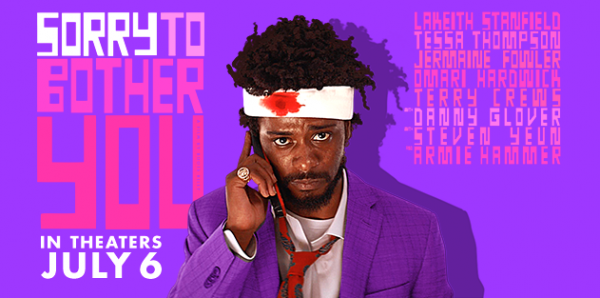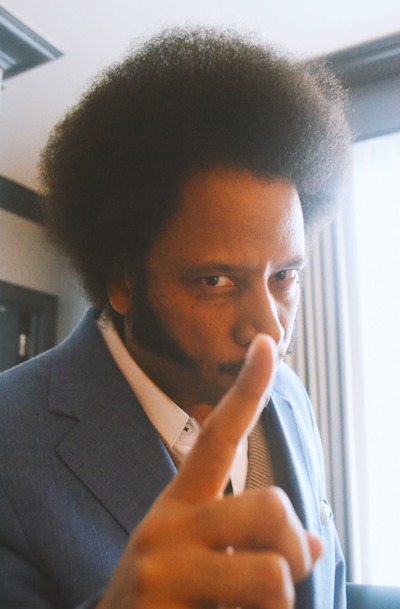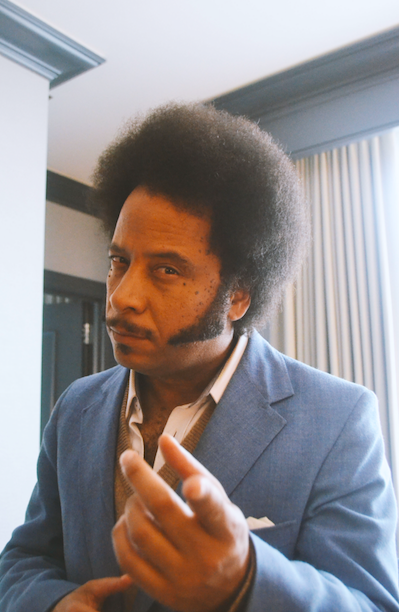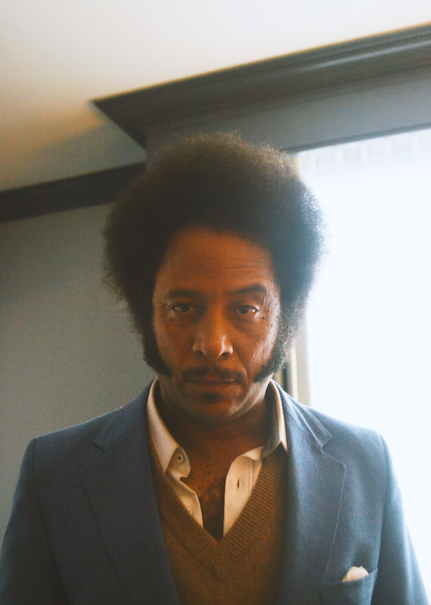Musician Boots Riley on his directorial film debut, ‘Sorry to Bother You’

“Sorry to Bother You” is a politically charged joyride of a movie. Directed by Boots Riley, the movie follows the rising career of telemarketer Cassius Green. Green, played by Lakeith Stanfield, is introduced as an eccentric man with an even more eccentric girlfriend Detroit, played by Tessa Thompson. Green lands a job as a telemarketer and after receiving advice to “use his white voice” while making sales, he is promoted to become a “power caller.”
Power callers are at the top of the totem pole which thrusts him into a strange world of power, money and questionable drugs. The rise however, starts to cost Green his relationships with fellow employees. Even as the other employees plan a protest to stand up for worker rights, he is hesitant to comply. As the movie progresses we see a newly wealthy Green face moral dilemmas. The movie incorporates fantastical and dystopian elements, yet the world they live in still stays grounded in reality.
Riley is no stranger to making political statements through his work. He is known for his musical work as the lead vocalist in the bands Street Sweeper Social Club and The Coup. The bands were popularly known for their political views and statements. In his directorial debut, Riley approaches this movie with the same political vigor. Themes such as corruption and exploitation of race are thoroughly explored in an artful and sometimes humorous manner. Almost every scene aims to address the flaws that modern day society has. The concept of using a “white voice” is a comment on the sad reality that many people of color in the workforce face. In this case, a black man is being told that to succeed in the workforce he must mask his racial identity. Other themes such as friendship and power dynamics in relationships are explored as well, making this film versatile and well rounded.
The Connector: What made you want to make a movie, specifically a movie like this?
Riley: I’ve been wanting to make movies for a long time. I went to film school at San Francisco State. I dropped out when we got a record deal so I just wanted to make movies since then. Even during that time, you’re watching a film in a different way, you’re thinking about what you would do. I had done this project with Tom Morello from Rage Against the Machine, it’s called Street Sweepers Social Club and that was something where he did all the music and I did all the lyrics. It wasn’t as artistically fulfilling for me and it made me feel like I just needed to something with no boundaries, where I could just create my own world.
Riley: Did you see the movie?
The Connector: Yes, it was amazing. I have truly never seen anything like that before. As someone who aspires to do films, I see this movie as groundbreaking.
Riley: Thanks. I wanted to make something where you can’t just be sitting there guessing what’s going to happen next. Your mind watches it differently when you know exactly is going to happen next.
The Connector: I definitely think it demands a different level of engagement because if you blink you’ll miss something. It could take a different turn at any time.
The Connector: As an artist do you think the creative process of making music and making a film is similar?
Riley: It’s really similar because although I wanted to get this funded, I was like, “Hey I went to film school, hey I co-directed this music video.” The real skill that I used was [one I learned from] producing music. I might be producing a song and I’ve got the best bass player in the world, the drummer that thinks he’s the best drummer in the world and a keyboard player that’s some weird guy. Individually, they each know way more about music than I do, but I’m the one that has to have the vision. Not only do I have to have the vision and have them play, I have to have them buy into it. I have to get them so entrenched in the vision that they wanna help make that happen. I also have to realize that the guitar riff that I thought it should be is nowhere near as good as the way that guy just played it. I have to replace my personal ego and have that attached to the vision of the finished product. We have to get there and make that the best product possible. By product, I mean the best-finished piece. Doing that, working with people and realizing how to get the best out of them. I also have to mitigate because the guitar player is always going to want a guitar solo and that’s probably not what the song calls for. On the way to getting the movie to pre-production, you have to deal with everyone’s ego. You may be driving in a van for 10 hours and one person has their feet up and gets into an argument because no one wants to admit that they’re wrong. You have to be able to deal with all those things — deal with people who may be disrespectful.
“Sorry To Bother You” is set to release in theaters on July 6, 2018.

























